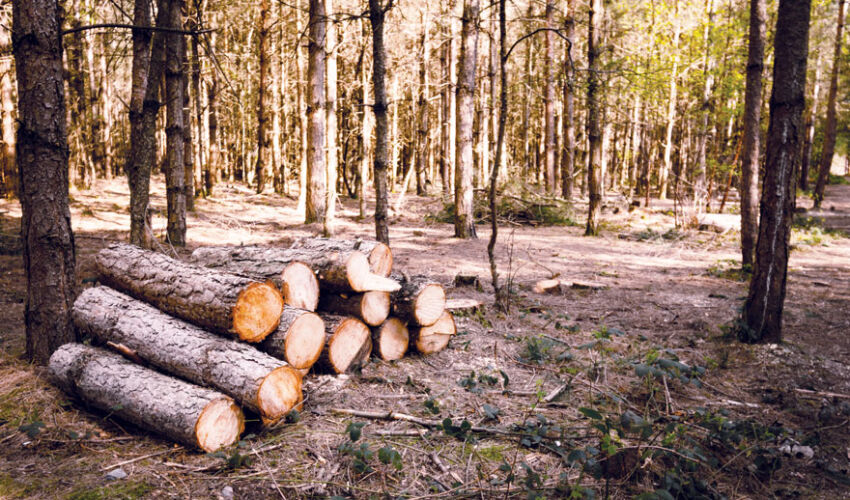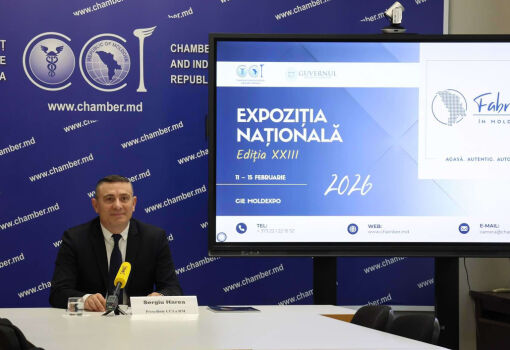
Many public figures and opposition politicians were outraged by this practice. The leader of the “Democracy at Home” party Vasile Kostiuk even made a special report near the village of Capriana, where oak trees were cut down, although this is prohibited by law. Kepriana village, where oak trees were cut down, although this is prohibited by law.
The reaction of the Minister of Environment Sergiu Lazarencu was astonishing – he went to the same place from where Kostiuc made his “report” and wrote a “refutation” – the trees were cut down not for export, as the oppositionist claimed, but “legally” – for sale to a local businessman. The minister threatened to sue Kostyuk for “misinformation”.
What is important here is that the Minister of Environment is not concerned about the problem of deforestation itself. He is concerned with the “correct interpretation” of what is happening!
But Ilya Trombitsky, a well-known environmentalist and nature defender, a member of Moldova’s first parliament, executive director of the International Association of Dniester River Keepers Eco-Tiras, Doctor of Biological Sciences, looks at the situation differently. “The felling of century-old oak trees continues in Moldova. The logic of this is based on the principle – it is ripe – it must be cut down! But the trick is that trees are not pigs, and the older they are, the more effective ecological services they provide!”, – he wrote on his page in social networks.
And further Ilya Trombitsky cites the practice of the US Forestry Service – US Forestry Service – as an example. Being concerned about the full function of the forest as a contributor to the formation of a favorable hydrological regime in the context of climate change, this Service concludes contracts with firms that cut down small and medium-sized trees to prevent forest fires and provide older trees better conditions for development. It also pays for the work, with the felled trees going to the firms free of charge. In addition, the old trees serve as a refuge for fauna such as bats, dormice and birds.
“With us, the older the tree, the less chance it has of surviving. The fauna of the forests is getting poorer and the springs are drying up. Along the road to Bender through the Herbovets forest, there are many areas where oak trees were cut down 20-30 years ago. There are only a few oaks left “for seeds”. But between them acacia has developed abundantly. There will never be oaks here again. But acacia does not form groundwater. The country is drying up,” the ecologist stated.
The well-known political scientist Alexei Tulbure, who, by the way, has a rather loyal position towards the current Moldovan authorities, reacted to these statements in a remarkable way. “Ministers change. Governments change. The foreign policy course of the country changes. Even the United States has changed. Only the attitude of those in power to the Moldovan forests does not change. The so-called “sanitary felling” leads to the complete (in some not too distant future) replacement of valuable tree species (oaks, in particular) by acacia. This is the path to catastrophe”.
And then the author specifically comments on the current situation in Moldova. “Maya Sandu’s “afforestation” policy should have led to an increase in the area of healthy, valuable forests, not to the continuation of mass cutting of oaks in nature reserves. And it is useless to talk about it with the “responsible for forests” bosses – ministers, all kinds of advisors, directors, etc. – they will accuse you of ignorance, political interest, etc., etc. Now go to the villages of Kondritsa and Capriana (which is a National Reserve) and your hair will stand on end in horror. There is massive logging going on. For local, as the Minister says, parquet manufacturers.”
Alexei Tulbure calls on the authorities to hold a public debate to determine the scale of the problem and how to solve it. And he asks a well-founded question: “I understand that it is difficult to reform justice, but is it also impossible to preserve and increase quality forests in Moldova?”.
Will there be a substantive response from the Moldovan government and other responsible state structures? Or will the statements that “everything is done legally” be heard again?

